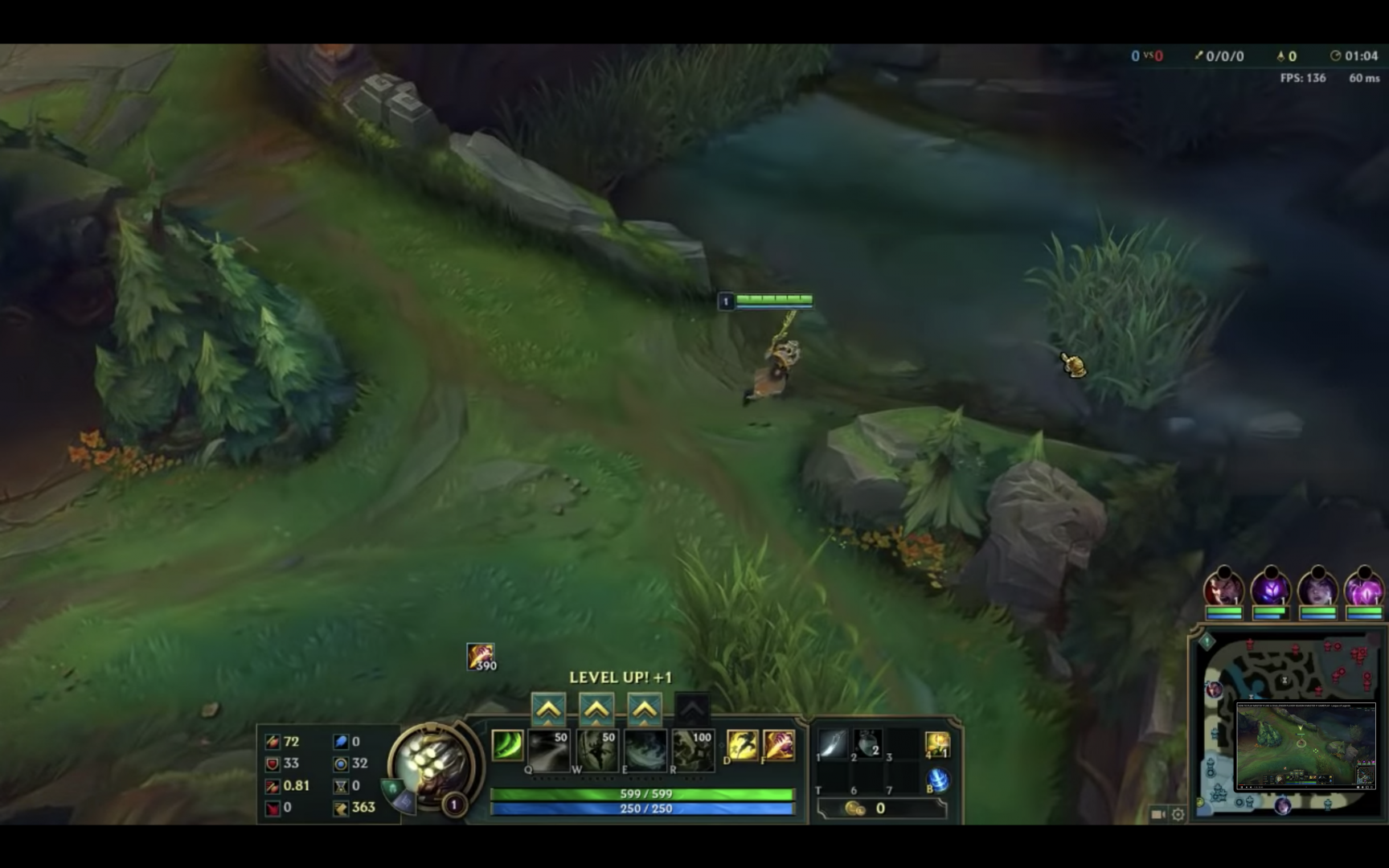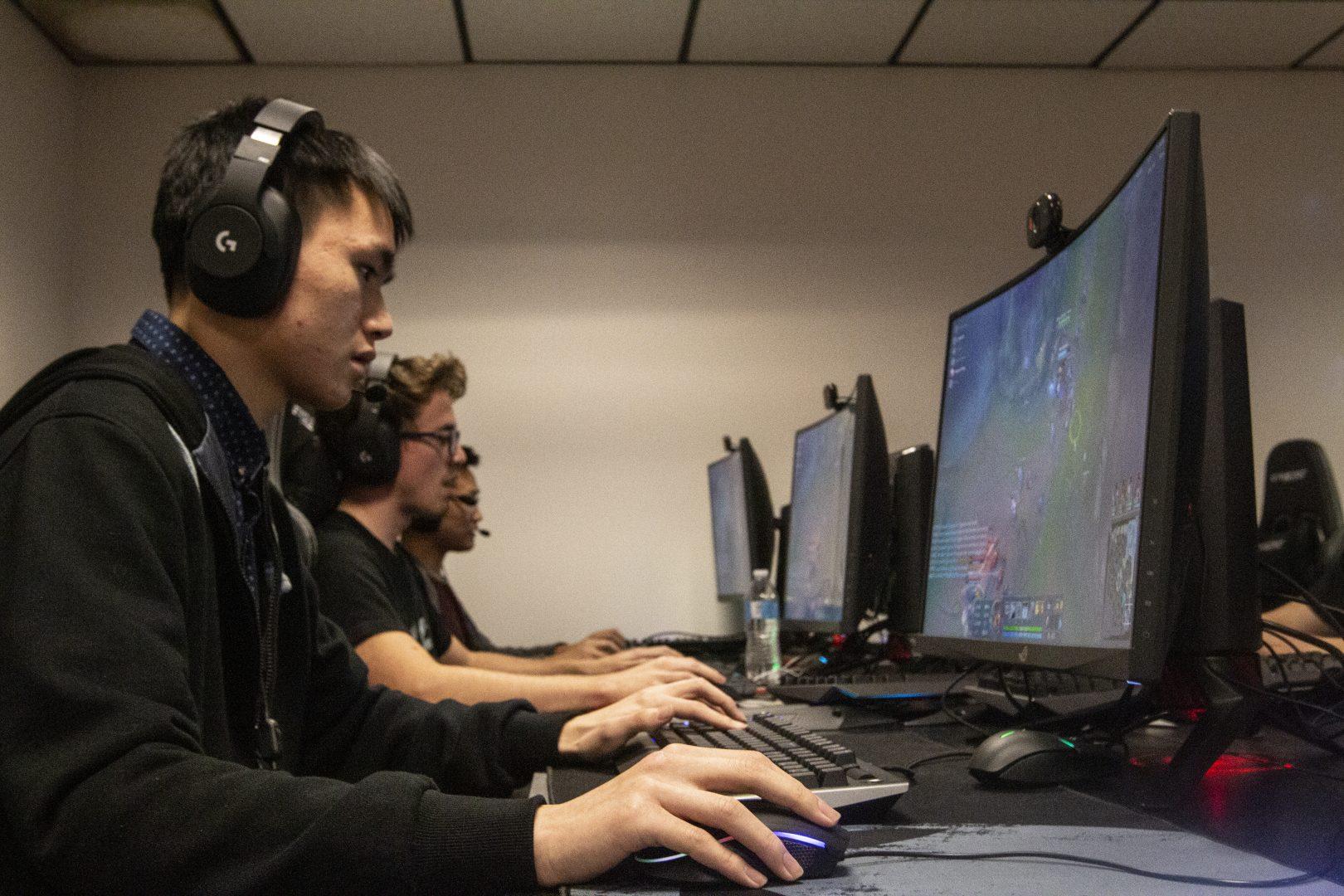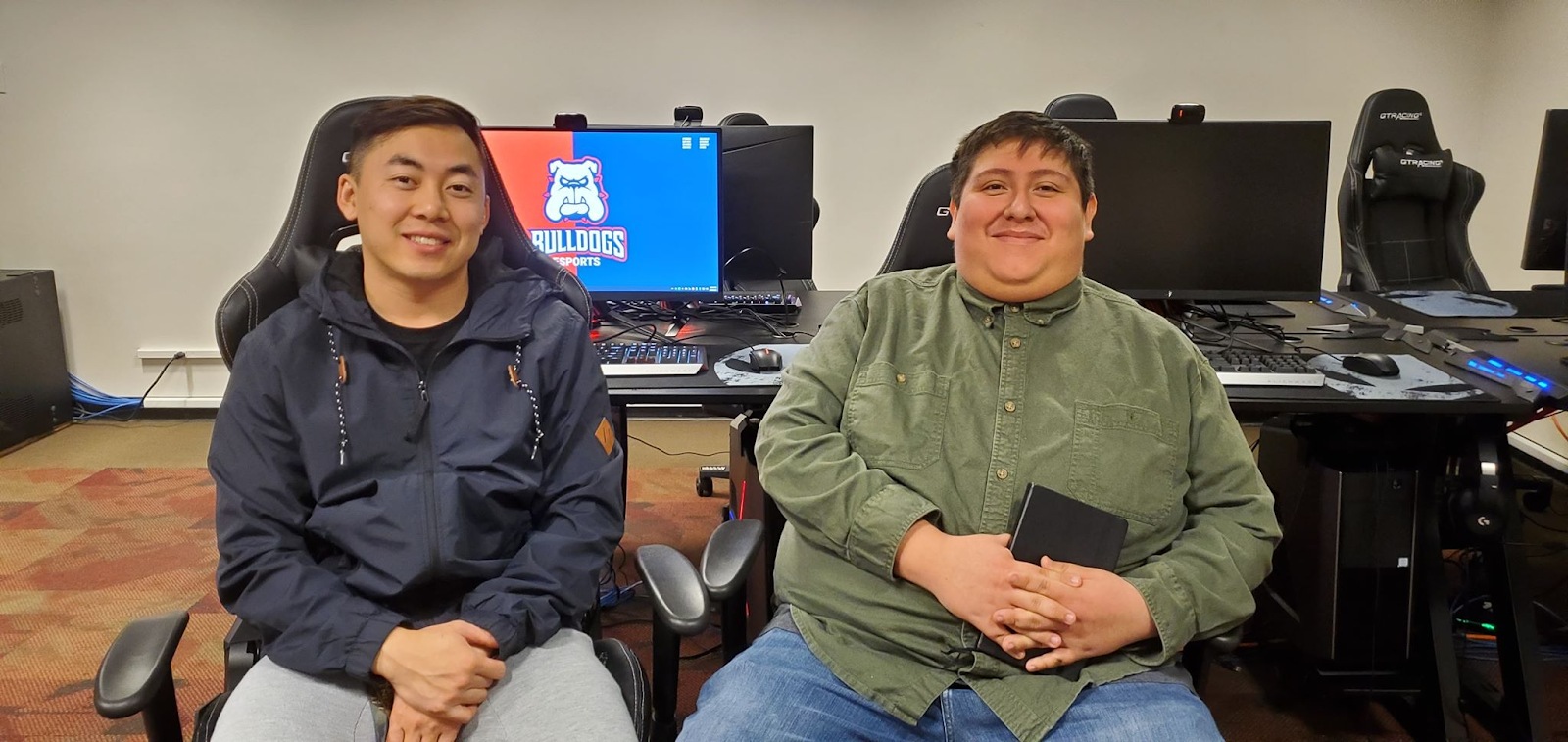When Tommy Cherta Lee heard about the opportunity to be one of Fresno State’s head coaches for its new esports program, he was living 1,500 miles away attending Bellevue University in Bellevue, Nebraska.
Lee, 28, was taking classes on a full-ride scholarship while playing on their esports team. He saw the opportunity and thought to himself, ‘Hey, you know what? It’s not going so well here.’ With that uncertainty, he left the Cornhusker State and flew to the Central Valley.
Lee, whose parents are first-generation Hmong refugees, was 27 at the time and wanted to look for opportunities outside Nebraska. It was a mere coincidence the one place with an opening was the one he least expected — Fresno, California, his hometown.
“I didn’t really focus on Fresno because I didn’t think there was an [esports] scene,” Lee said.
In fact, the university did not reach out to Lee. He learned about the new program from a friend of a friend. A high school student he had met in Fresno knew a friend that went to Fresno State.
The student told Lee Fresno State was looking for a coach for its esports program in the one game Lee knew best — “League of Legends.”
“League of Legends” is one of the most popular free-to-play games in its genre, multiplayer online battle arena (MOBA), with over 100 million active players each month. In the game, players use a keyboard and mouse, fighting across a forest known as the Summoner’s Rift to defeat the enemy team’s nexus, a massive crystal-like structure at the northeast and southwest corner of the map.

Matches are typically between two teams of five players where each team member plays a different champion with different backstories, abilities and personas. Teams ultimately have to work together to defeat the nexus, which is guarded by many defensive structures along the way.
Lee has been playing MOBA games for 14 years. This includes games such as “Dota,” “Dota 2,” “Heroes of the Storm,” “Smite” and “League of Legends.” He’s played “League of Legends” since the game’s launch in 2009 and has been an advisor, a coach and an analyst of the game for several years.
Lee said he always had a knack for video games from a very young age. But his parents were against him playing them, even though his father was a big video game enthusiast himself.
Born and raised in Fresno, Lee’s family owned a farm, and much of his time was spent there as a child. When Lee grew older, he was able to stay in his house by himself while his parents tended the farm.
As a result, Lee’s father bought him several video games, new and old. This included games at the time like “Pokemon,” “Super Mario,” “Super Metroid,” “The Legend of Zelda: Ocarina of Time” and older console games on the Super Nintendo Entertainment System (SNES).
In eighth grade, Lee became more competitive, venturing into games like “World of Warcraft” (WOW) and “Dota.” Growing up, he always wanted to play for more hours during the day, but his father set restrictions for him.
“He was against me playing video games because he wanted me to get really good grades in school, which I was,” Lee said. “I was only playing an hour or two each day, whereas he was playing three to six hours.”
Despite playing far less hours than his father, Lee challenged him to a duel in WOW and ended up beating him the very first time. Lee’s father wasn’t too ecstatic.
“He got upset, played it again, then he ended my subscription because he didn’t want me playing anymore … he said that I was playing too much,” Lee said.
At that moment, Lee said he realized he was farther ahead than most players and started taking video games more seriously.
Soon after, he reached out to players better than him and learned from two of his uncles, Richard Lee and Yer Moua. Richard Lee and Moua were highly skilled players in their respective games, “Counter-Strike” and “Dota.”
They taught Lee together and employed a tough style of coaching to improve his play.
“It wasn’t necessarily the typical ‘I’m coaching you, and you should get better,’” Lee said. “It was more of like ‘Hey you’re not good, you should probably figure out why you’re so stupid.’ I took that to heart, but I took it in the most positive way.”
Although it isn’t a one-size-fits-all approach to coaching, Lee said it was great to learn from them to improve his own skills.
Once Lee graduated from Edison High School, he didn’t envision a future in esports. It was only 2010, and “League of Legends” didn’t grow in popularity until one or two years later.
Lee’s parents wanted him to pursue a degree in a stable career path, but Lee said he didn’t know what he wanted to do. Against his own wishes, he went to San Jose State to study biochemical engineering.
Throughout his time there, Lee said he wanted to leave, and it constantly weighed on his mind.
“I kept that [the idea of leaving] away from them [Lee’s parents] for almost two years, and I let them know because it was eating at me,” Lee said. “At that point, I perceived it as failing in life.”
Lee said the conversation to leave San Jose State didn’t go well as his parents thought he was going to continue being a “bum” for the rest of his life.
But Lee said he had a plan for his future, and he stopped trying to meet the expectations of other people, including his parents.
According to Lee, his father was hesitant, but his mother was extremely caring. Lee said his mother pushed his father to let him pursue a career in video games because she realized that’s what made him happy.
So, Lee left San Jose State in 2013 and tried to find his place in the world. During this time, he was playing “League of Legends” very frequently and teaching himself several subjects like philosophy and psychology.
In “League of Legends,” Lee was able to climb to the top 200 ranked players in the North American server — one year after leaving college. When asked about it, Lee said he wasn’t taking anything seriously and was just having a lot of fun.
At the same time, Lee was managing a team, streaming and playing on two different teams. Lee’s skills caught the attention of people in the professional scene as he got an offer to play on an Academy team — the minor league equivalent of the “League of Legends” Championship Series.
Lee turned down the offer, but he received an offer from Bellevue University in the summer of 2018 to play on their esports team. The offer came with a full-ride scholarship, so Lee took it.
One year later, Lee heard about Fresno State’s program and contacted Gerrado “Jerry” Gomez, the coordinator of Off-Campus Student Life and Involvement at Fresno State, at the end of September 2019.
Because of his skills and his experience as a coach, Lee was hired for the position. At the “League of Legends” informational session last year, Gomez said Lee was the perfect person for this program.
“He is not only focusing on winning, he wants to build the students holistically,” Gomez said in October. “Once he has his players doing well competitively in “League of Legends,” he wants them to also be doing well in life. Making sure they are doing well with their nutrition and as a student. Being a student comes first and then ‘League of Legends.’”
And Gomez isn’t the only one to sing Lee’s praises. Alan Gurrola, the assistant coach of Fresno State’s esports team, looks up to Lee as a mentor and a coach.
Gurrola and Lee are both from Fresno, and they studied and played competitively in Nebraska together. They’ve been roommates ever since their time in Nebraska, and Gurrola said he loves the way he works with people.
“He just knows how to get along with people, make them comfortable but he’ll also try to empower them,” Gurrola said. “He just brings the energy where you’re gonna have to work hard but it feels rewarding.”
Fresno State needed someone experienced to lead its “League of Legends” team because the program is a Mountain West (MW) Conference member for esports. Even for Lee, his first year was a challenge.
The team held tryouts for the varsity team at the end of October last year, so Lee had less than two months to work with a team before the start of the season in January. The team never managed to scrap a win, ending with a 0-10 record.
“I kind of punched them [the team] in the stomach with a bunch of knowledge, and they’re on the ground,” Lee said. “That was basically this season where I sucker punch them and now they’re able to recover and then kind of reapply.”
Fresno State support player Gia Huy “Bakon Yummi” Pham said Lee was not only a good coach but a good friend in his first season.

“Not only is he knowledgeable in terms of game mechanics and fundamentals, he extends that into real life and helps us not only as players, but as individuals to improve upon our everyday lives,” Pham said.
Lee said he’s still very confident about the team’s future in the next couple of years. He’s recruiting local talent from an organization he co-founded, Advocates of Esports.
Many of these students are still in high school, but Lee said that once they graduate he hopes to recruit them to Fresno State. And with Lee at the helm, he said the team can compete in the MW in a few years.
“We have found some gems at high schools that are going to be graduating in a couple of years,” Lee said. “We’re probably going to be the best in three years.”
Written with a contribution from Galcy Lee and Marc Anthony Lopez




